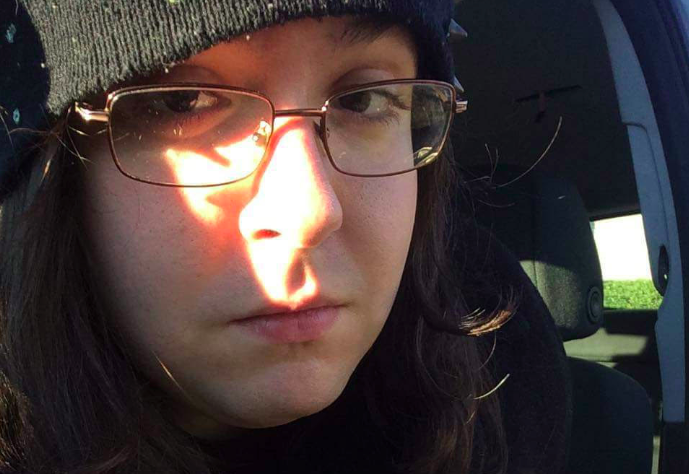Devin Cole: Navigating a Non-Binary Life in a Binary World

I am 15, living in a small town in the middle of Alabama when I consider genital reconstruction surgery for the first time. I tell myself that maybe, if I change my genitalia, I will feel less like the gender I have pretended to be for 15 years, and more like the other gender I know nothing about, and also feel no attachment to. I do not know how to express my feelings to anyone, even my therapists. I am all alone in this gender limbo. Fortunately, the plans for genital reconstruction surgery never formulate.
I am 17, living in Birmingham, Alabama, the biggest city in Alabama, when my friend announces that they are genderqueer; I have never heard of this before, and like most people who fear what they do not know, I mock them, claiming that you can only be male or female. On the inside, though, anxiety begins to set in, as I fall further away from trying to perform the gender I have pretended to be for 17 years.
I am 18, living in Florida, going to college, when the panic attacks begin. I finally say to myself that I need someone to talk to about this – I have never told anyone, but I do not feel like the gender I was assigned at birth, but I have no connection to the other gender in the two-gender system we know. Luckily, by this point, I have made a friend online who is getting their PhD in Women's and Gender Studies, and one night I frantically message them in mid-panic attack, finally telling someone for the first time that I do not feel male or female, that I do not feel like a man or a woman; I am in a gray area and it is very lonely there. I am scared of what I might be, but I am even more scared of what I am not – my friend is understanding; they send me an e-book on gender and for the first time, I read about non-binary identity, or gender identities that sit outside of the male-female gender binary that we are taught our whole lives. I learn that some people are genderfluid, or that they move between gender identities, I learn that some people are bigender, or that they identify with two genders at the same time, and lo and behold, I learn that there are people who are agender, or people who do not feel any connection to any gender whatsoever, people who are in that gray area like me; they exist too.
At first I come out as genderfluid, to try and reconcile my feelings of gender neutrality with my femininity, moving between feminine and neutral, but after several months, I know that femininity is not what I am – I can still dress femme, but I've known for quite some time that I am entirely neutral, and I come out as agender. My college friends and my friends from my second high school are supportive, even some from my first high school, and eventually, my mother and my sister, but outside of these spaces, I am seen as a threat. My presence as an agender person has been cited as an abomination and “not being real”, by cisgender, heterosexual fundamentalists, cisgender, queer people, and even trans men and women who think I'm “stealing their spotlight”. My pronouns “they, them, and their” are a constant topic of debate. It was once lonely being in the gray area, but now it is just exhausting.
I am 21 when House Bill 2 passes in North Carolina, which, among other horrendous new laws, bans transgender people from using the public bathrooms congruent with their identities – I say “their” not to other myself, but to show that I have been a threat in both men and women's restrooms; unless there is an all-gender bathroom nearby, I am constantly using the wrong bathroom. Then the ads start; transgender men and women who have gone through Hormone Replacement Therapy, and had top and bottom surgeries, facial feminization surgeries, start appearing on my newsfeed with captions like: “Do you want ME in the men's/women's bathroom with your children?” I feel lonely again in the gray area; where are people like me supposed to fit? Those of us who do not conform to any set gender expression or identity, what about us? Furthermore, what about trans men and women who don't “pass”? What about them?
We are going about this the wrong way. When we say comprehensive transgender education, that has to include non-binary identity; it is historically inaccurate to deny the existence of genders that go beyond the western society's way of thinking, because they have existed time immemorial. We must look past our own fragile ideas of biological essentialism and approach the construct of gender through social and historical analyses. This conversation must also move past the bathroom issue and look towards a broader meaning of anti-discrimination; transgender people can still be fired for being transgender, and that includes non-binary transgender people like myself. We can still be denied housing, employment, and we can even be denied space in cisgender queer spaces. Most importantly, we must look to each other for strength, to collectively rise up and demand our rights and our liberation – there are more than two genders, whether you want to believe it or not, and we need to address all of these genders, and ensure that they are safe and strong. That is how we should teach antidiscrimination, and this is how we get free.

